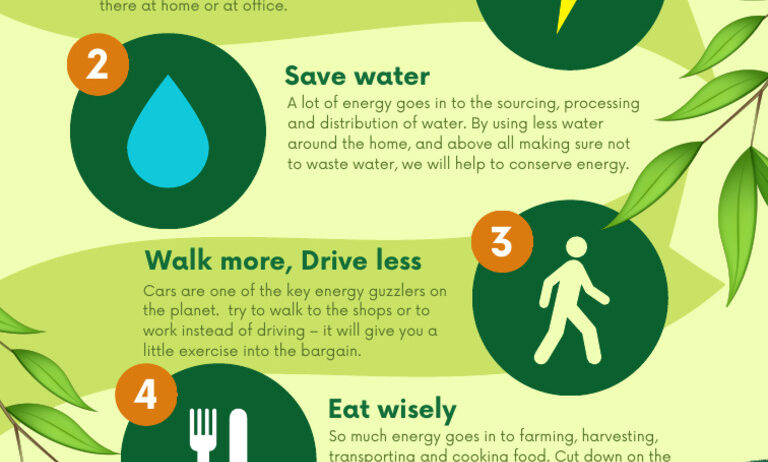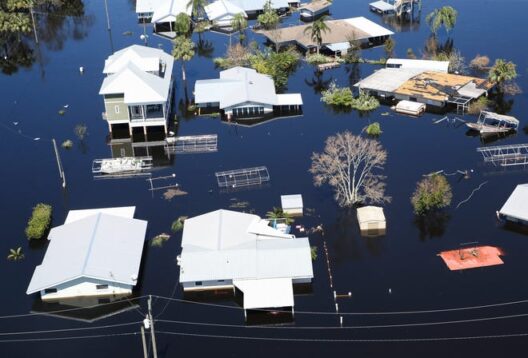In our fast-paced world, energy conservation often takes a backseat to convenience and modern conveniences. Have you ever paused to consider how your daily habits might be impacting the environment? The good news is that small changes can lead to significant benefits. Here are ten simple yet effective habits you can adopt to conserve energy in your daily life. Let’s embark on this journey towards sustainability together.
1. Embrace Natural Light
One of the simplest ways to reduce your energy consumption is to maximize the use of natural light. Open your curtains wide during daylight hours and let the sun illuminate your space. Not only does this practice minimize reliance on artificial lighting, but it also creates a warm, inviting atmosphere in your home. Consider arranging your furniture to take full advantage of that glorious sunlight. After all, wouldn’t you prefer a sunny workspace rather than a dark, dreary one?
2. Turn Off the Lights
This might sound rudimentary, but the impact of habitually turning off lights cannot be overstated. Do you leave the room without extinguishing the light? Challenge yourself to develop the habit of switching them off. Additionally, consider investing in smart bulbs or motion-sensor lights to minimize unnecessary energy use. This isn’t just about saving money; it’s about fostering a conscientious energy use mentality.
3. Optimize Your Thermostat
Your thermostat is a powerful tool in energy conservation. During winter, lowering the temperature by just a few degrees can lead to substantial energy savings. Similarly, in summer, raising the thermostat can mitigate energy expenditure. Wear appropriate clothing for the season instead of over-relying on heating or cooling systems. Why not set a personal challenge to save energy by adjusting your thermostat settings and seeing the results on your energy bill?
4. Unplug Devices
Many electronics consume energy even when turned off, a phenomenon known as phantom load. Make it a habit to unplug chargers, appliances, and devices that aren’t in use. Alternatively, invest in power strips that can be easily switched off. This minor adjustment can help in slashing your energy consumption, and who wouldn’t want to save a little more on their utility bill?
5. Opt for Energy-Efficient Appliances
When it’s time to replace old appliances, lean towards energy-efficient models. Look for Energy Star labels; these products meet strict efficiency guidelines set by the U.S. Environmental Protection Agency. Although energy-efficient appliances might require a larger initial investment, the long-term savings and lesser environmental impact make them worthwhile. Challenge yourself to research and prepare a list of energy-efficient alternatives to your current appliances. Can you do it?
6. Reduce Water Heater Temperature
Your water heater is a significant energy consumer in your household. By reducing its temperature to 120°F, you not only conserve energy but also reduce the risk of scalding. Insulating your water heater can further enhance efficiency. How about setting a goal to check and adjust your heater’s temperature this weekend? Small adjustments yield sizable rewards.
7. Limit Hot Water Use
Be conscious of your hot water usage. Simple practices like taking shorter showers, fixing leaks, and washing clothes in cold water can collectively save gallons of water and energy. Imagine setting a personal best for the shortest shower time. Could you challenge your family or yourself to shorten your shower times this week?
8. Consider Sustainable Transportation
Transportation plays a significant role in energy consumption. Whenever possible, opt for walking, biking, carpooling, or using public transport. Commit to limiting car trips and explore local amenities on foot or by bike. How about challenging yourself to a week without driving? You might discover new routes and increase your fitness level while simultaneously reducing your carbon footprint.
9. Practice Efficient Cooking
Cooking can be an energy-intensive process. Make it a habit to use lids on pots, cook in batches, and utilize the microwave for small meals. Each of these practices can save both time and energy. Ever thought of having a “no oven” day? Challenge yourself to create delicious meals without using energy-hungry appliances.
10. Engage with Your Community
Nurturing a culture of energy conservation is more impactful when done collectively. Get together with friends, neighbors, or community members to discuss energy-saving habits and share tips. Community workshops focused on energy efficiency can inspire others. Could you spearhead a local initiative to encourage energy conservation? It’s a fulfilling challenge that amplifies positive change.
Adopting these simple habits can significantly contribute to energy conservation in our daily lives. The challenge lies not only in implementing these changes but in maintaining them. By embracing these practices, you are not only reducing your carbon footprint but also instilling a sense of responsibility that can ripple through your family and community. Isn’t it time we all played our part in the preservation of our planet? Let’s take on this challenge together and make a meaningful difference!







